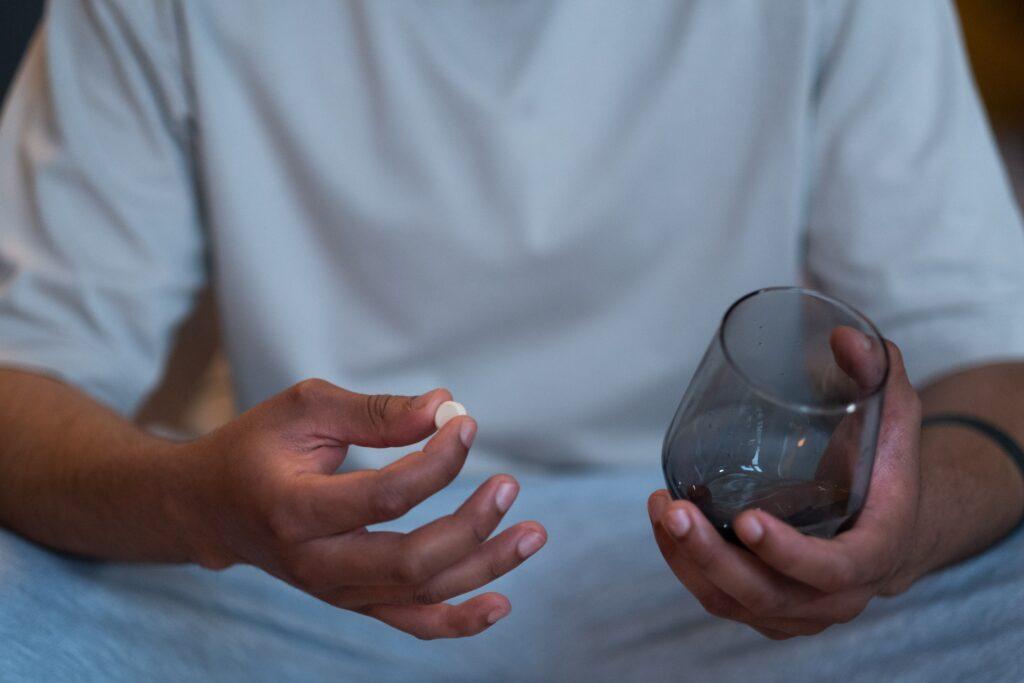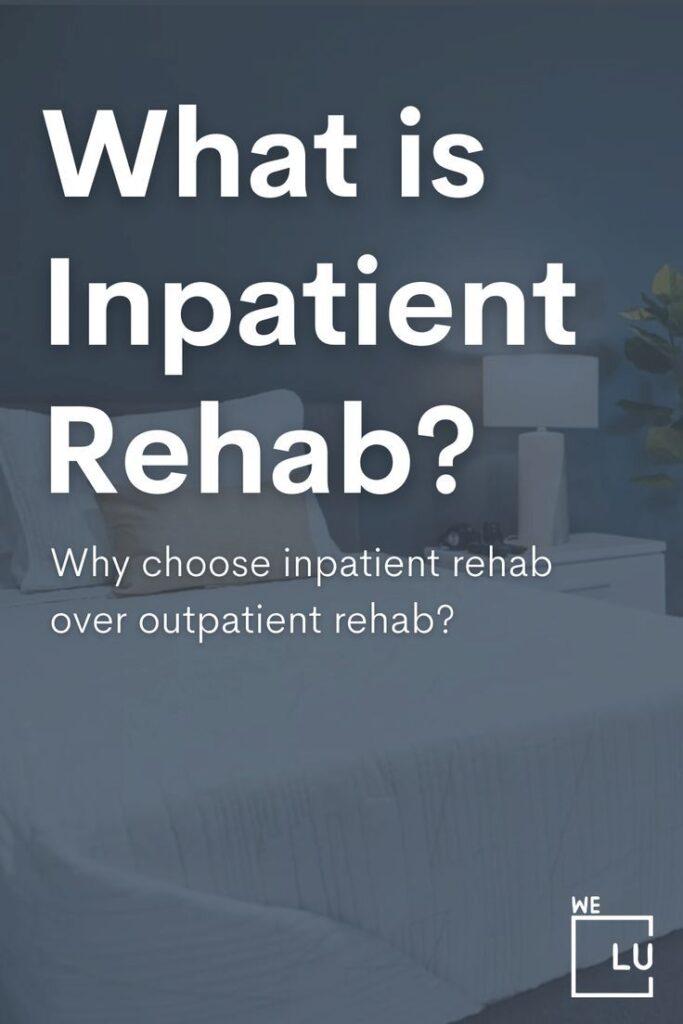Ativan Withdrawal
Ativan withdrawal refers to the physical and psychological symptoms individuals may experience when they abruptly reduce or discontinue their use of Ativan (lorazepam), a medication belonging to the benzodiazepine class. Ativan is primarily prescribed to manage anxiety disorders, panic attacks, and insomnia. When used for an extended period, the body can develop a dependence on Ativan, leading to withdrawal symptoms if the drug is stopped suddenly or the dosage is significantly decreased.
Withdrawal occurs as the body adjusts to the absence of Ativan, attempting to regain balance without the presence of the drug. The severity and duration of withdrawal symptoms can vary depending on factors such as the dosage, duration of Ativan use, individual physiology, and the method of discontinuation. Ativan withdrawal can be challenging and uncomfortable. Still, with proper medical supervision and support, individuals can successfully navigate this phase on the path to recovery.
Ativan Withdrawal Symptoms
Ativan withdrawal symptoms can manifest in various physical, emotional, and psychological experiences. The intensity and duration of Ativan side effects withdrawal can vary depending on individual factors and the specific circumstances of Ativan use. Some common Ativan withdrawal symptoms include:
- Anxiety and panic: During withdrawal, heightened anxiety levels and panic attacks are expected. These symptoms can be severe and may require medical intervention and support.
- Insomnia and sleep disturbances: Ativan is often prescribed for sleep-related issues, so discontinuation can lead to difficulty falling asleep, staying asleep, or experiencing restful sleep.
- Irritability and mood swings: Withdrawal from Ativan can cause irritability, mood swings, agitation, and a general sense of unease or restlessness.
- Muscle pain and tension: Individuals may experience muscle pain, stiffness, and tension as their body adjusts to the absence of Ativan. This can manifest as headaches, body aches, and increased muscle tension.
- Gastrointestinal discomfort: Nausea, vomiting, diarrhea, and stomach cramps are common gastrointestinal symptoms that may occur during Ativan withdrawal.
- Sensory hypersensitivity: Heightened sensitivity to light, sound, and touch can occur during withdrawal, leading to discomfort and a feeling of being overwhelmed.
- Cognitive difficulties: Difficulty concentrating, memory problems, confusion, and cognitive impairment may arise during Ativan withdrawal. These symptoms can impact daily functioning and require extra support.
Not everyone will experience all of these symptoms, and the severity can vary. It is advisable to seek medical guidance and supervision when discontinuing Ativan to ensure a safe and comfortable withdrawal process.
How Long Does Ativan Withdrawal Last?
The duration of Ativan withdrawal can vary from person to person. Several factors influence the timeline, including the dosage and duration of Ativan use, individual physiology, and the method of discontinuation. Generally, the acute withdrawal phase, characterized by the most intense symptoms, can last anywhere from a few days to a few weeks.
The initial symptoms of Ativan withdrawal typically emerge within the first 24-48 hours after the last dose. During this phase, individuals may experience heightened anxiety, insomnia, mood swings, and physical discomfort. These symptoms may peak within the first week and gradually subside over the following weeks.
Some individuals may experience a more prolonged withdrawal process, especially if they have been using Ativan for an extended period or at high doses. Some residual symptoms, such as mild anxiety, sleep disturbances, and mood changes, may persist for several weeks or months after the acute withdrawal phase.
Seek medical guidance and support when discontinuing Ativan to ensure a safe and manageable withdrawal process. Healthcare professionals can provide personalized advice, develop an appropriate tapering schedule, and offer strategies to alleviate withdrawal symptoms and promote overall well-being.

Skip To:
Learn More:
- Ativan Vs Klonopin, Differences, Similarities & Which is Better For You
- How Does Ativan Make You Feel? Benefits, Side Effects & Abuse
- Is Ativan Addictive? Lorazepam Addiction Signs, Symptoms, & Treatment
- Ativan Vs Xanax, What Is The Difference?
- How Long Does Ativan Stay In Your System?
- What Is A Prescription Pill Detox Program?
- Prescription Drugs Addiction Causes & Symptoms
Get Help. Get Better. Get Your Life Back.
Searching for Accredited Drug and Alcohol Rehab Centers Near You?
Even if you have failed previously and relapsed, or are in the middle of a difficult crisis, we stand ready to support you. Our trusted behavioral health specialists will not give up on you. When you feel ready or just want someone to speak to about therapy alternatives to change your life call us. Even if we cannot assist you, we will lead you to wherever you can get support. There is no obligation. Call our hotline today.
(844) 597-1011Popular Ativan Withdrawal FAQs
-
Is Ativan For Alcohol Withdrawal?
Yes, Ativan (lorazepam) is commonly used for alcohol withdrawal. It belongs to the benzodiazepine class of medications, which effectively manage symptoms associated with alcohol withdrawal, such as anxiety, agitation, tremors, and seizures. Ativan helps to stabilize the central nervous system and alleviate the potentially dangerous effects of alcohol withdrawal.
-
What Is The Ativan Dosage For Alcohol Withdrawal?
The dosage of Ativan for alcohol withdrawal can vary depending on the severity of symptoms and individual factors. A typical starting dosage is 2-4 mg of Ativan, administered orally in divided doses throughout the day. A healthcare professional may adjust the dosage based on the individual’s response and symptom control.
-
What is The Max Dose Of Ativan In 24 Hours For Alcohol Withdrawal?
The maximum recommended dosage of Ativan in 24 hours for alcohol withdrawal is usually 10 mg. However, a healthcare professional should determine the dosage based on the individual’s specific needs and response to treatment.
-
Is Ativan For Opioid Withdrawal?
While Ativan is primarily used for managing alcohol withdrawal, it may also be utilized as a supportive medication during opioid withdrawal. Ativan can help alleviate symptoms of anxiety, restlessness, and sleep disturbances that can arise during opioid withdrawal. However, Ativan alone is insufficient for treating opioid addiction and should be used as part of a comprehensive treatment plan under medical supervision.
-
What is Ativan Taper For Alcohol Withdrawal?
Ativan taper refers to gradually reducing Ativan dosage over a specific period to discontinue the medication safely. Tapering is preferred to prevent severe withdrawal symptoms and minimize the risk of rebound effects. The duration and specific tapering schedule for Ativan during alcohol withdrawal depend on individual factors and should be determined by a healthcare professional.
-
Does Ativan Help With Alcohol Withdrawal?
Yes, Ativan can be effective in managing symptoms associated with alcohol withdrawal. It helps to reduce anxiety, agitation, and other withdrawal symptoms by acting on the central nervous system. Ativan’s sedative properties can promote relaxation and aid in the overall management of alcohol withdrawal symptoms.
-
What is Ativan And Alcohol Detox for Ativan And Alcohol Withdrawal?
Ativan and alcohol detox refers to safely and systematically removing Ativan (lorazepam) and alcohol from the body during withdrawal. Detoxification from Ativan and alcohol typically occurs under medical supervision in a specialized detox facility or addiction treatment center.
The process involves closely monitoring the individual’s vital signs, managing withdrawal symptoms, and providing appropriate medical interventions. The goal of Ativan and alcohol detox is to ensure a safe and comfortable transition through the withdrawal phase while minimizing the risk of complications. It is crucial to undergo detoxification in a professional setting where healthcare professionals can provide the necessary support and care.
-
Is Ativan For Withdrawal?
Yes, Ativan (lorazepam) can be used for withdrawal, particularly in alcohol withdrawal or benzodiazepine tapering. It is often prescribed to manage withdrawal symptoms, such as anxiety, agitation, and insomnia, and to help stabilize the central nervous system during withdrawal. However, it should only be used under medical supervision and as part of a comprehensive treatment plan.
Ativan Factsheet
Ativan Overview
Ativan (lorazepam) is a fast-acting benzodiazepine for treating anxiety and seizures. It enhances the effects of GABA in the brain, providing calming and sedative effects. It is available in various forms and takes effect within 30-60 minutes. The duration of Ativan’s effects is approximately 6-8 hours. However, caution is advised regarding potential side effects and the risk of dependence. Regular communication with a healthcare provider is important for safe and effective use.
Ativan Addiction Treatment
Ativan addiction treatment involves a comprehensive approach to help individuals overcome dependence on the medication.
Treatment typically includes detoxification, counseling, therapy, and support groups. Detoxification involves gradually tapering off Ativan under medical supervision to minimize withdrawal symptoms.
Counseling and therapy sessions address addiction’s underlying causes and triggers while developing coping mechanisms. Support groups provide a network of individuals facing similar challenges.
Ativan Effects And Abuse
- Therapeutic Effects: Ativan is primarily prescribed to alleviate symptoms of anxiety disorders and to manage certain seizure conditions. It enhances the calming effects of GABA, a neurotransmitter in the brain. Ativan can relieve anxiety, induce relaxation, and reduce seizures when used as directed.
- Short-term Effects: When abused, Ativan can produce feelings of euphoria, sedation, and relaxation. It can also cause drowsiness, confusion, impaired coordination, and memory problems. Combining Ativan with alcohol or other substances can intensify these effects and increase the risk of overdose.
- Long-term Effects: Prolonged misuse or addiction to Ativan can result in physical and psychological dependence. Individuals may experience withdrawal symptoms, rebound anxiety, insomnia, and difficulty functioning without the drug. Chronic abuse can also lead to cognitive impairment, depression, and social withdrawal.
- Risks and Precautions: It’s important to take Ativan exactly as a healthcare professional prescribes and avoid exceeding the recommended dose or duration of use. Regular use of Ativan beyond the prescribed period or without medical supervision can increase the risk of addiction, tolerance, and withdrawal symptoms.
Ativan Abuse Statistics
This section provides a brief look at the latest statistics regarding Ativan abuse. By examining critical data and trends, we gain insight into the prevalence and impact of Ativan misuse and its associated consequences. Understanding these statistics helps shed light on the scope of the issue and underscores the importance of addressing Ativan abuse as a significant public health concern.
1.5 million
An estimated 1.5 million people aged 12 or older misused tranquilizers like Ativan in 2018 in the United States.
Source: SAMHSA, NSDUH 2019.
11,500
Benzodiazepines, including Ativan, were involved in over 11,500 emergency department visits in the United States in 2019.
Source: Drug Enforcement Administration, 2020 National Drug Threat Assessment.
30%
Benzodiazepines were involved in approximately 30% of prescription drug overdose deaths in 2013.
Source: Sun, E. C., Dixit, A., & Humphreys, K. (2019).

Get Your Life Back
Find Hope & Recovery. Get Safe Comfortable Detox, Addiction Rehab & Dual Diagnosis High-Quality Care.
Hotline(844) 597-1011
Ativan Withdrawal Timeline Chart
The following chart presents a timeline of potential withdrawal symptoms during the discontinuation of Ativan:
Ativan Withdrawal Day 1-3:
- Rebound anxiety and increased agitation.
- Insomnia and sleep disturbances.
- The initial onset of withdrawal symptoms.
- Potential physical discomfort (headaches, muscle tension).
Ativan Withdrawal Day 4-7:
- Heightened anxiety and mood swings.
- Continued sleep disturbances.
- Gastrointestinal issues (nausea, vomiting, stomach cramps).
- Cognitive difficulties (concentration issues, memory problems).
Ativan Withdrawal Week 2-4:
- A gradual reduction in withdrawal symptoms.
- Decreased anxiety and mood stabilization.
- Residual sleep disturbances.
- Lingering physical discomfort and gastrointestinal issues.
Ativan Withdrawal Week 5 onwards:
- Continued improvement in symptoms.
- Gradual resolution of sleep disturbances.
- Residual mild anxiety and mood changes.
- Potential lingering cognitive difficulties.
This timeline is a general guide; not everyone will experience withdrawal symptoms in the same way or for the same duration. Individual factors, including dosage, duration of use, and personal physiology, can influence the withdrawal timeline. It’s recommended to consult with a healthcare professional for personalized guidance and support during the Ativan withdrawal process.
First-class Facilities & Amenities
World-class High-Quality Addiction & Mental Health Rehabilitation Treatment
Rehab Centers TourRenowned Addiction Centers. Serene Private Facilities. Inpatient rehab programs vary.
Addiction Helpline(844) 597-1011Proven recovery success experience, backed by a Team w/ History of:
15+
Years of Unified Experience
100s
5-Star Reviews Across Our Centers
10K
Recovery Success Stories Across Our Network
- Low Patient to Therapist Ratio
- Onsite Medical Detox Center
- Comprehensive Dual-Diagnosis Treatment
- Complimentary Family & Alumni Programs
- Coaching, Recovery & Personal Development Events
Ativan Detox Near Me & Inpatient Rehab
Ativan detox and inpatient rehab are two essential components of comprehensive treatment for Ativan dependence or addiction. Here’s an overview of each:
Ativan Detox
Ativan detox refers to safely and gradually removing the drug from the body while managing withdrawal symptoms. Detoxification from Ativan should ideally be conducted under medical supervision to ensure the individual’s safety and comfort. Healthcare professionals can provide appropriate medications, monitor vital signs, and offer emotional support during this phase.
A detox may involve a tapering schedule, where the dosage of Ativan is gradually reduced, allowing the body to adjust to lower levels of the drug. Detox helps individuals safely transition to a drug-free state before proceeding with further addiction treatment.
Inpatient Rehab
Inpatient or residential rehab is a comprehensive treatment program that provides 24-hour care and support within a controlled and structured environment. Inpatient rehab is highly recommended for individuals struggling with Ativan addiction or dependence. During inpatient rehab, individuals reside in a treatment facility for a designated period, typically ranging from a few weeks to several months, depending on the person’s needs and progress.

Inpatient rehab offers a variety of evidence-based therapies, counseling sessions, group support, and holistic approaches to address the underlying issues related to Ativan addiction. The treatment may include individual therapy, behavioral therapies, psychoeducation, relapse prevention strategies, and support for co-occurring mental health disorders if present. Inpatient rehab provides a supportive and structured environment where individuals can focus solely on their recovery and learn coping skills to maintain long-term sobriety.
The combination of Ativan detox and inpatient rehab provides a comprehensive approach to addressing addiction’s physical and psychological aspects. Detoxification ensures a safe and comfortable withdrawal process. At the same time, inpatient rehab offers a supportive and immersive treatment environment for individuals to address the underlying factors contributing to their Ativan addiction and develop strategies for lasting recovery.
World-class, Accredited, 5-Star Reviewed, Effective Addiction & Mental Health Programs. Complete Behavioral Health Inpatient Rehab, Detox plus Co-occuring Disorders Therapy.
CALL(844) 597-1011End the Addiction Pain. End the Emotional Rollercoaster. Get Your Life Back. Start Drug, Alcohol & Dual Diagnosis Mental Health Treatment Now. Get Free No-obligation Guidance by Substance Abuse Specialists Who Understand Addiction & Mental Health Recovery & Know How to Help.
We Level Up Dual Diagnosis Treatment
We Level Up is a reputable rehabilitation center renowned for its exceptional commitment to helping individuals overcome addiction and co-occurring mental health conditions. The facility is widely recognized for its comprehensive approach, which combines evidence-based therapies, expert medical care, and a holistic perspective to provide a truly comprehensive and successful path to recovery.
At We Level Up, a diverse range of therapeutic techniques is employed as part of their treatment approach. The cornerstone of their program is individual counseling, where highly trained therapists create a nurturing and supportive environment for individuals to delve into the underlying causes of their addiction and address any emotional issues that contribute to their challenges. This one-on-one therapy allows personalized attention and tailored treatment plans to meet each individual’s unique needs.
Experience Transformative Recovery at We Level Up Treatment Centers.
See our authentic success stories. Get inspired. Get the help you deserve.
Start a New Life
Begin with a free call to an addiction & behavioral health treatment advisor. Learn more about our dual-diagnosis programs. The We Level Up Treatment Center Network delivers recovery programs that vary by each treatment facility. Call to learn more.
- Personalized Care
- Caring Accountable Staff
- World-class Amenities
- Licensed & Accredited
- Renowned w/ 100s 5-Star Reviews
We’ll Call You
Watch The Prescription Drug Abuse & Prescription Medication Addiction Recovery & Sobriety Story Informative Video
Video Script
“I wanted my life back. I was a shell of a person. I wanted to be trusted; I wanted relationships back that I lost, mainly my children and family. It started innocent enough, I got into a car accident, and then I got sucked into the whole, you know, medication issue with the pills. And before I knew it, I was in a cloud. I was sucked in by addiction, and with my mind, I kept thinking it was OK because a doctor was prescribing this for me, a doctor was giving me this, a doctor was giving me that.
So, I didn’t think I was doing anything wrong. Level Up supports my family and my relationships with my family, and they’ve helped me grow as a person. When I first started there, I was so intimidated and scared, you know? But, they’ve taught me, they’ve taught me how to come into my own. And then, you know, when I get the call from my twenty-one-year-old daughter in the middle of the day, to say ‘I love you, Mom.’ that’s amazing.”
Jen’s Addiction Recovery Testimonial.
Search We Level Up Ativan Withdrawal Resources
Sources
- National Institute on Drug Abuse (NIDA) – Ativan (Benzodiazepine) Withdrawal: https://www.drugabuse.gov/drug-topics/trends-statistics/infographics/benzodiazepines-and-opioids
- Substance Abuse and Mental Health Services Administration (SAMHSA) – Medication-Assisted Treatment for Prescription Drug and Opioid Addiction: https://www.samhsa.gov/medication-assisted-treatment/treatment#medications-used-in-mat
- National Library of Medicine (NLM) – Lorazepam Withdrawal: https://medlineplus.gov/ency/article/000949.htm
- National Institute of Mental Health (NIMH) – Anxiety Disorders: https://www.nimh.nih.gov/health/topics/anxiety-disorders/index.shtml
- National Institutes of Health (NIH) – Understanding Drug Abuse and Addiction: https://www.drugabuse.gov/publications/drugfacts/understanding-drug-abuse-addiction


